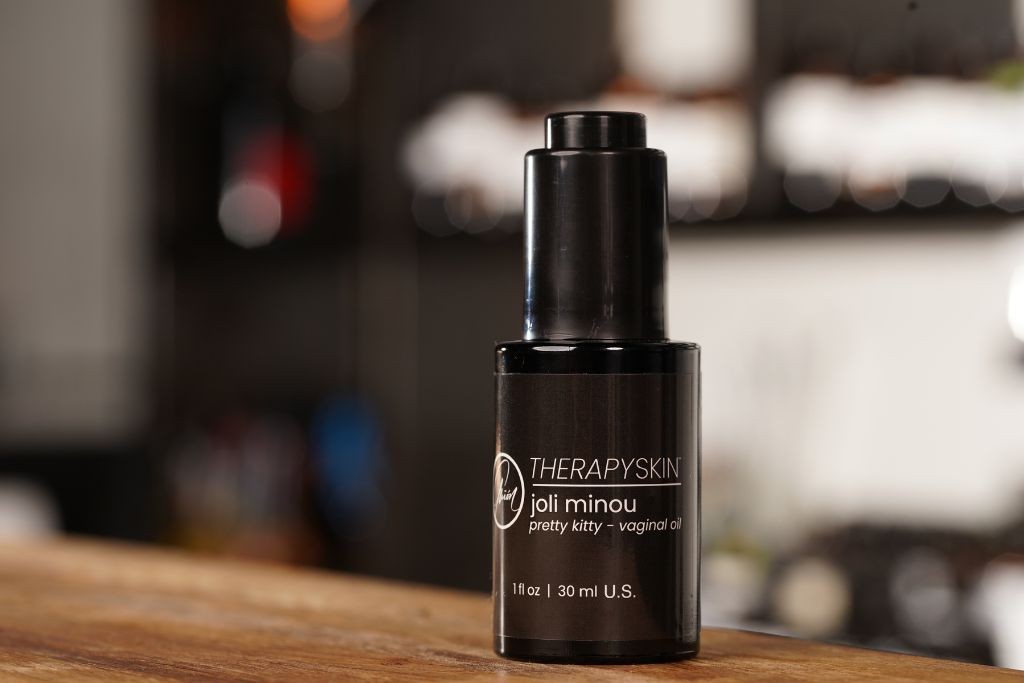
Ways to Keep Your Vagina Fresh
Your vagina is built to self-clean, and your most important job is to monitor and maintain a healthy, clean surrounding environment. But even with a vagina that regulates itself, you can take a few measures to keep it feeling fresh and healthy.
Vaginas are a source of pleasure, enabling us to conceive children, undergo menstruation once a month, get affected by hormonal ups and downs, and ultimately deal with menopause. We shave them, dress them in pants and stockings, and if we feel very confident, we’ll wear a thong.
Therefore, paying particular attention to the daily hygiene of this part of the female body is essential. It is, after all, our most delicate organ.
Here is all you need to know for a fresh, healthy vagina.
What Does A Healthy Vagina Look Like?

A healthy vaginal appearance can vary from woman to woman. Vaginas differ in length, shape, color, and texture. Take the time to familiarize yourself with your vagina so you can recognize a healthy one.
The vagina is a muscular canal that connects the vulva to the uterine neck (cervix). It begins at the introitus, or inner portion of the labia, and ends at the cervix, i.e., the opening of the uterus.
What Factors Contribute to Vaginal Infections?
Infectious germs can enter the vagina through poor hygiene or irresponsible sexual activity. Bacteria, fungi, or other organisms that proliferate unchecked can lead to vaginal infections. Some of these species are already present in the vagina, where they cohabit with other organisms to maintain healthy populations.
What Is Vaginal pH, And Why Is It Important?
The vagina is protected against infection by its acidic environment. The pH value indicates how acidic or alkaline a substance is. A lower pH value (below 7) indicates the higher acidity of a substance. Similarly, higher pH values (7 and above) indicate alkalinity. A vagina with a pH of 4.5 or less is healthy.
A unique combination of beneficial microorganisms in the vagina keeps it acidic to prevent infection. Some of these beneficial microorganisms, called Lactobacilli, maintain the acidity of the vagina by creating hydrogen peroxide and lactic acid.
A less acidic pH typically indicates that there are not enough beneficial microorganisms in the vagina to defend it against irritants or infection.
One of the female sex hormones, estrogen, promotes a healthy amount of lactobacilli and an acidic pH in the vagina. The vagina’s pH and the amounts of beneficial bacteria also fluctuate with the levels of estrogen and progesterone throughout the monthly period and a female’s lifetime.
Douching, or cleansing the inner vagina, can also affect vaginal pH. Several over-the-counter cleansing and moisturizing products can assist in maintaining a normal vaginal pH if necessary. However, active cleaning of the vagina is often unnecessary. Only the external genitalia require washing, and water and simple soap are sufficient.
Tips to Keep Your Vagina Fresh
Here are a few tips that can help keep your vagina fresh.
- Consider regular screening. Although current guidelines warn against yearly pelvic exams, if you are symptom-free and not expecting, a yearly examination is essential for discussing health issues.Before instantly switching to the three-year rule, see your physician. With your personal and family medical history combined, some risk factors may necessitate frequent pelvic and Pap checks.
Even though you do not require an annual test, it is OK to seek one. You can use this time to discuss fertility, birth control, and STI screenings.
- Use cotton underwear. Your vagina prefers cotton when it comes to your choice of underwear. This is why most underwear has a cotton strip in the crotch.It’s all about breathability. Cotton lets air in and absorbs sweat.
If you’re lounging around the house and letting things air out, you might decide to go commando. However, make sure not to go to the gym without underwear, as you need that added layer between your vagina and the germy equipment in the gym.
- Change out of wet or drenched clothing. It is tempting to wear workout clothes to brunch after the gym and for the remainder of the day. Avoid doing this.Bacteria thrive in situations that are dark and wet. If you can’t take a shower after swimming or exercising, at least get out of your swimsuit or sweaty underwear.
- Use lube. It’s a huge downer when you get sexual but your vagina doesn’t take the hint. Vaginal dryness can be a side effect of various drugs, such as antihistamines, antidepressants, and hormonal birth control. It can also occur after pregnancy or just before menopause.When this occurs, ensure that you communicate with your partner so they do not proceed before you have been adequately lubricated, which is painful and can cause abrasions. Or you may use a lubricant to accelerate the act and make the sexual activity even more exciting.
- Use condoms. Condoms are the only effective method of protection against sexually transmitted illnesses.According to a 2013 study published in the journal PLoS One, they also play a role in maintaining pH levels during sex, allowing healthy bacteria to thrive.
This is of the utmost importance, as these microorganisms prevent yeast infections, urinary tract infections, and bacterial vaginosis. - Always proceed from front to back in sex. You should never transition from anal to vaginal sex without first changing the condom or cleansing yourself thoroughly. Also, going from the rear to the front entrance exposes your vagina to many microorganisms, which might increase your risk of infection.
- If you are douching, stop immediately. Your vagina does, in fact, clean itself. The vagina already contains beneficial microorganisms that preserve its balance. Introducing new chemicals can alter and upset this balance.A 2013 study published in Obstetrics & Gynecology indicated that using intravaginal hygiene products increases the likelihood of infections, pelvic inflammatory illness, and sexually transmitted diseases (STDs). So, avoid doing it.
- Avoid using scented soaps. Even though scented shower gels may be fantastic, you should never use them on the genitalia.That’s because, unlike your skin, your vagina has no additional protective layer. Soap and other chemicals can severely damage this delicate skin.
Simply rinsing with warm water will suffice to maintain cleanliness in that area. If you don’t feel comfortable going soap-free, stick with an ordinary, gentle, unscented soap.
- Avoid overusing antibiotics. Unnecessary antibiotic use can drastically diminish vaginal health. Due to the fact that antibiotics kill both good and bad bacteria, they can alter the flora (the colony of beneficial bacteria) in your vagina, thereby promoting yeast growth and other infections.Obviously, if you need an antibiotic to fight an infection, don’t refuse the prescription. But always make sure that it’s absolutely necessary.
- Attempt to be more cautious during a cycling class. Cycling studios are an unanticipated location where your vaginal health may be compromised. While cycling, frequent cyclists may be susceptible to genital numbness, discomfort, and tingling (not necessarily pleasant).In fact, most female bikers who participated in research published in the Journal of Sexual Medicine exhibited these symptoms. If you enjoy cycling in studios, try and wear padded shorts and modify your form to avoid vaginal discomfort throughout your workout.
Conclusion

You may believe you know everything about maintaining the well-being of your female organs, but you may be mistaken. From douching to skipping your annual exam, there are numerous myths regarding what you should do to keep a healthy vagina.
If you adhere to the advice above, you will increase your chances of keeping your vagina fresh and healthy. Moreover, see a gynecologist if you notice any discomfort down there.
